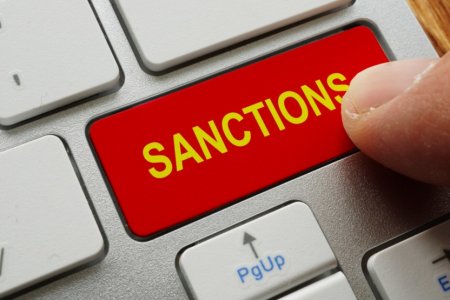
Ladies and gentlemen,
I will talk about the situation of Russian civil society activists — not just human rights defenders.
During the last year and a half in Russia, criminal proceedings have been initiated against 634 people from 78 regions of Russia because of their anti-war stance. Of these, 200 people have been imprisoned: 181 are behind bars, 11 are under house arrest, and 8 are undergoing forced treatment. I do not have the opportunity to name them all.
After the beginning of the so-called “special military operation”, a law was rapidly adopted punishing with imprisonment those people who interpret the operation in any other way than “the use of the Armed Forces of the Russian Federation to protect the interests of the Russian Federation and its citizens, to maintain international peace and security”. People have been sent to prison for anti-war statements. Among them is a municipal deputy council member, Mr. Alexei Gorinov, who received a sentence of 7 years for words about the deaths of Ukrainian children resulting from the war started by Russia — words said at a meeting of the council of deputies. Among them is an opposition politician Ilya Yashin, who risked asking questions about the events in Bucha. Among them was Igor Baryshnikov, a lonely pensioner from the Kaliningrad region who was caring for his 97-year-old mother. In June this year, he was sentenced to 7 and a half years for anti-war publications on social networks. His mother died in early August and he was denied the opportunity to attend the funeral.
Many have not yet been convicted but are already in prison on similar charges. For example, Maksym Lypkan, 18, who applied to hold an anti-war rally on the anniversary of the Russian invasion.
More than 19,000 people were subjected to detentions and fines for anti-war speech, even just for using the word “war."
Two weeks ago, Grigory Melkonyants, the leader of Golos, an organization that has been monitoring elections in Russia and fighting against violations for many years, was sent to jail; a number of Golos activists have been subjected to searches. Even though many political opponents of the current regime — Vladimir Kara-Murza, Alexei Navalny and others — are already in prison, the authorities are still afraid of observers in the upcoming elections.
Director Yevgenia Berkovich and playwright Svetlana Petriichuk have been arrested and have been in jail for 4 months already — their play, which won one of the main Russian theater awards a year ago, was suddenly found to be “justification of terrorism”.
Alexander Chernyshov, head of the Perm Center for Historical Memory, was arrested on the ridiculous charge of “attempting to export the organization’s archives”.
I have named only a few examples, in fact there are, I repeat, hundreds.
Unfortunately, the possibilities of judicial defense have fallen almost to the Soviet level. Courts in Russia have not been defending the law for a long time, judges almost always obediently fulfill the wishes of the Ministry of Justice and the Prosecutor’s Office. This is not only a Russian problem, but it is particularly acute for Russia. And, it seems, an international convention on the non-application of statutes of limitations for crimes against justice would be useful to solve this problem. Those who destroy this institution — police officers who write false reports, investigators and prosecutors who bring false charges, and, of course, judges who pass unjust verdicts — all of them should understand that they will be held responsible.
Not only the civil society activists, but also public organizations in general are being persecuted. Many of Russia’s most respected human rights organizations have been liquidated under ridiculous pretexts, including: the Moscow Helsinki Group, the Sakharov Center, Agora, and the Sova Information and Analytical Center.
Following a court decision to liquidate International Memorial for “improper” labeling of several of its texts, the Memorial Human Rights Center was also liquidated under the same ridiculous pretext. The Perm Memorial was also liquidated, and the premises of the Yekaterinburg Memorial were taken away. In March of this year, a number of Memorial activists in Moscow were searched, and a criminal case was opened against unnamed members of our organization on the ridiculous charge of “justifying Nazism”. The Putin regime has long been unconcerned about the plausibility of the charges.
In addition to liquidation of organizations, Russian authorities have come up with other ways to put pressure on organizations, and different ways to make their work more difficult.
One of them is the inclusion of organizations (and now individual citizens) in the so-called “register of foreign agents”. This happens extrajudicially, by the arbitrary decision of officials of the Ministry of Justice. Among those included in this register are: the Levada Center, one of Russia’s leading sociological centers; the Glasnost Defense Foundation; a number of organizations from Memorial; the Human Rights Group “Citizen. Army. Right,” which helps conscripts; the above mentioned GOLOS Association, which protects the rights of voters; the Foundation “In Defense of Prisoners’ Rights”; the Sakhalin Environmental Watch group, and many dozens of others.
Another form of pressure, less widespread but significantly more severe in its consequences, is the recognition of international or foreign organizations operating in Russia as “undesirable”. This decision is taken by the Prosecutor General’s Office — also out of court, without explanation of the motives. There have already been more than a hundred organizations recognized as “undesirable”, including Greenpeace, Transparency International, the World Wide Fund for Nature, the independent TV channel Dozhd, and many others. Russian citizens and organizations face criminal liability for cooperating with an “undesirable” organization. Since no term is defined in the law, anything can be recognized as cooperation — an interview given to an “undesirable” media outlet, and quite possibly even correspondence.
Of course, as the experience of Soviet dissidents shows, the lack of legal status of an organization, and even criminal repression of its members, makes work difficult, but not impossible. The activity of public organizations is not a mere whim of individuals. It is a social need, and in many cases — a social necessity. And especially now, when many of the rights and freedoms declared by the Constitution are becoming as much of a fiction, as they were in Soviet times, when freedom of speech has been definitively abolished, when all television channels and all mass print media are in the hands of the state and in reality are not means of information, but of propaganda.
Refugees and internally displaced persons are still in need of assistance and protection, the problem of protecting the rights of military personnel and conscripts has become extremely acute, the problems of the disabled and prisoners are not going away, the persecution of political opponents of the authorities continues, cases of disappearances without trace and torture are not being investigated, and it is still necessary to prevent electoral fraud. And civil activists are dealing with all these problems regardless of whether officials like it or not.
Now this work is becoming as difficult and risky as it was under the Soviet regime, but it continues, although it has become incomparably more difficult to succeed. Our predecessors of 40 years ago did not give up — and we are not going to.
I will conclude with a few more words.
I represent Memorial, an association of people working with the memory of the tragic past. It is impossible to make people forget the past. And it is even more impossible when the past is coming back. And this return has practically already happened, and the work of human rights organizations is becoming more and more necessary and in demand.
The return to Soviet methods of suppressing dissent is naturally accompanied by a return to Soviet historical myths, sometimes bizarrely distorted and amplified. For example, the 1939 pact with Hitler, which even Soviet propagandists were ashamed of, explaining it by necessity and omitting the secret protocols, is now proclaimed a triumph of Soviet diplomacy.
Formally, the state has not revised its attitude to Communist terror — but monuments to Stalin appear in various Russian cities, sometimes with the assistance of local authorities.
A new history textbook has just appeared that reproduces the old concepts of “hostile environment” and Russian exceptionalism. History dissected by propagandists becomes an ideological weapon.
The dispute is not so much about historical facts as about the foundations of the human community.
Man is not a consumable material for solving state tasks, as it seems to the current Russian authorities. Man is the master of the state and its builder.
It is not for the state to determine how people should live, but for people to determine what kind of state there should be.
These are not abstract humanistic ideals — these are practical principles for the survival of society.
Public organizations and activists, and human rights defenders, they are the safeguards, the detectors of dysfunction of a dangerous course of events.
By obstructing citizens from forming organizations, and by limiting the freedom of opinion, the state destroys its own future and the future of society.
A state that violates the rights of its own citizens inevitably becomes a danger to other states.
Therefore (I return to the theme of our meeting today), supporting activists who defend the rights of citizens is a common task and a common interest of people of goodwill. Support is needed both for those who continue to fight while remaining in their country and for those who have been forced to leave.
This is an extremely important task. And I hope that the international community will endeavor to resolve it.



